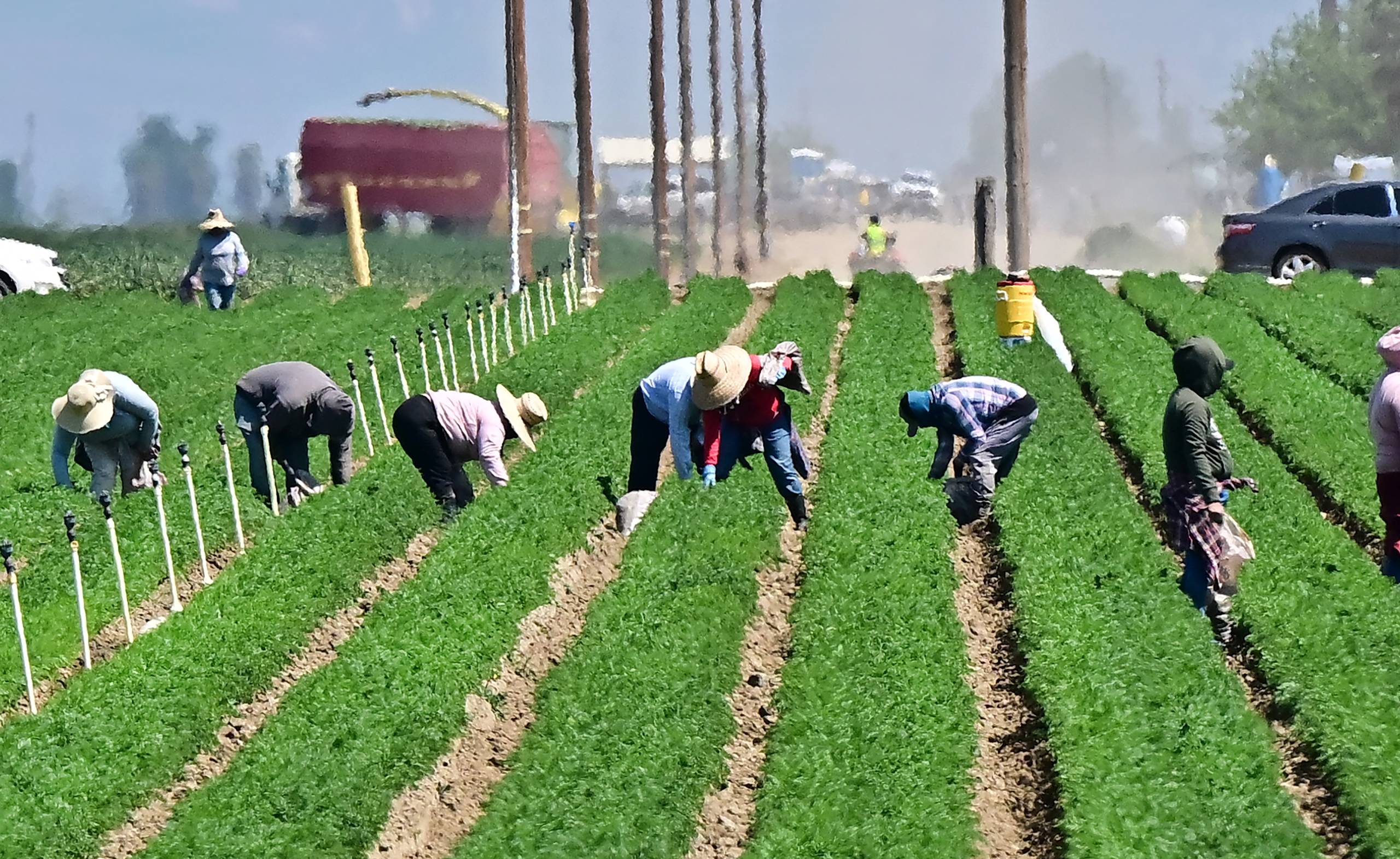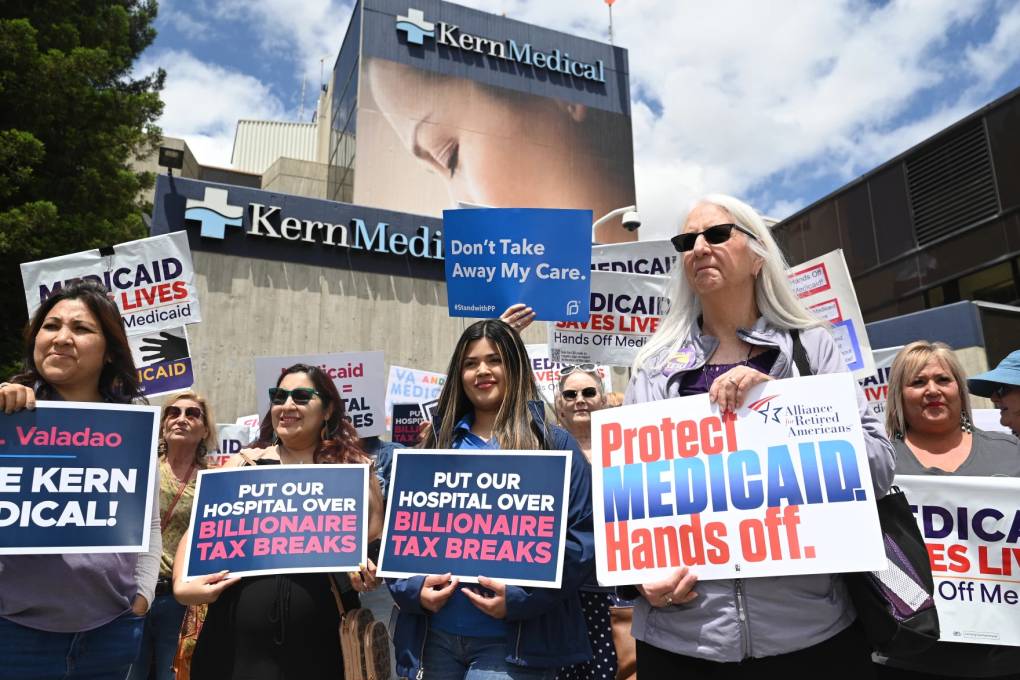The One Big Beautiful Bill Act will reduce federal SNAP spending by tightening exemptions for work requirements and requiring states to pick up a larger share of the program’s cost. The Center on Budget and Policy Priorities estimated that nearly 370,000 Californians are at risk of losing food stamp benefits because of the changes in work requirements.
Even deeper cuts are coming to Medicaid. The bill includes new requirements for recipients to prove they are working, volunteering or attending school, along with new limits on provider taxes — mechanisms that states such as California use to fund their Medicaid programs. Nonprofit health research group KFF estimates that California will lose 19% of its federal Medicaid funding over the next decade — a total of $164 billion.
“Fewer people are going to have health insurance coverage, because the amount of money that’s available to finance that coverage has been cut at the federal level,” said Kristof Stremikis, director of market analysis and insight at the California Health Care Foundation. “The insurance that people have is going to be less comprehensive, and so with less money available, you just cannot cover as many services.”
The fate of hospitals in rural areas such as the Central Valley is a particular concern, Stremikis said. Kaweah Health Medical Center in Visalia receives more than 30% of its revenue from Medi-Cal. It’s not only the largest hospital in Tulare County — it’s also the largest employer.
 Farm workers labor in the fields south of Bakersfield, in Kern County, California’s breadbasket, on April 9, 2025. (Frederic J. Brown/AFP via Getty Images)
Farm workers labor in the fields south of Bakersfield, in Kern County, California’s breadbasket, on April 9, 2025. (Frederic J. Brown/AFP via Getty Images)
In addition to the limits on eligibility and provider taxes, the bill also reduces the amount that hospitals can be reimbursed for treating certain undocumented immigrants, such as single adults making up to $21,597 a year.
“Providers are going to get paid less,” Stremikis said. “When there’s less money in the system, there’s just less money to pay hospitals, health systems, nursing homes, physicians’ offices.”
In a statement, Valadao defended his vote in support of the bill, citing a new $50 billion fund for rural hospitals and promising to “engage with the Centers for Medicare and Medicaid Services [CMS] to identify specific risks to Valley hospitals and mitigate them.”
